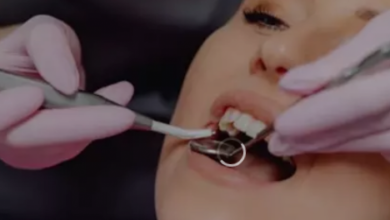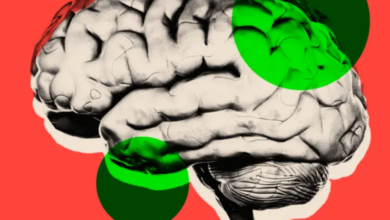Addiction Rehab A Comprehensive Guide to Overcoming Challenges
In a world grappling with various forms of addiction, the need for effective addiction rehab has never been more critical. From substance abuse to behavioral addictions, individuals facing these challenges often find themselves trapped in a cycle that seems insurmountable. This article aims to shed light on the intricacies of addiction rehab, providing valuable insights into the types of addiction, signs and symptoms, and the various approaches to rehabilitation.
Table of Contents
I. Introduction
Definition of addiction rehab
The addiction rehab short for rehabilitation, refers to the process of helping individuals overcome their dependencies on substances or behaviors that have a detrimental impact on their lives. This process involves a combination of medical, therapeutic, and support services aimed at facilitating recovery.
The growing need for addiction rehab services
With the increasing prevalence of addiction in society, there is a growing need for accessible and effective rehab services. The stigma surrounding addiction often hinders individuals from seeking help, making it crucial to address misconceptions and promote the importance of rehabilitation.
II. Types of Addiction
Substance abuse
One of the primary focuses of addiction rehab is addressing substance abuse. This includes dependencies on drugs, alcohol, and prescription medications, each requiring a tailored approach to treatment.
Behavioral addiction
In addition to substance abuse, rehab also addresses behavioral addictions, such as gambling, gaming, and compulsive shopping. These addictions, though not involving substances, can have profound impacts on mental health and overall well-being.
Co-occurring disorders
Many individuals seeking addiction rehab may also experience co-occurring disorders, such as anxiety, depression, or PTSD. Addressing both addiction and mental health is crucial for comprehensive recovery.
III. Signs and Symptoms
Physical signs
Identifying addiction often involves recognizing physical manifestations, including changes in appearance, weight loss, or deterioration of overall health.
Behavioral signs
Observable changes in behavior, such as increased secrecy, social withdrawal, or sudden mood swings, can indicate an underlying addiction issue.
Psychological signs
Understanding the psychological aspects of addiction, such as cravings, obsessive thoughts, and an inability to control impulses, is essential for effective rehab.
IV. Importance of Seeking Help
Breaking the cycle of addiction
Addiction rehab plays a pivotal role in helping individuals break free from the destructive cycle of dependency, providing the necessary tools and support for lasting recovery.
Improving overall well-being
Beyond overcoming addiction, rehab focuses on enhancing overall well-being, addressing the physical, mental, and emotional aspects of an individual’s life.
Rebuilding relationships
Addiction often strains relationships with family and friends. Rehab not only aids in personal recovery but also helps individuals rebuild and strengthen their connections.
V. Different Approaches to Addiction Rehab
Medical detoxification
The initial stage of many rehab programs involves medical detoxification, where individuals undergo supervised withdrawal from substances under medical care.
Inpatient rehabilitation
Inpatient rehab provides a structured environment for intensive treatment, offering 24/7 medical support and therapy sessions.
Outpatient programs
For those requiring flexibility, outpatient programs allow individuals to attend therapy sessions while maintaining their daily responsibilities.
Therapeutic interventions
Rehab often incorporates various therapeutic interventions, such as cognitive-behavioral therapy, group therapy, and holistic approaches, addressing the root causes of addiction.
VI. Challenges in Addiction Rehab
Stigma associated with addiction
Overcoming the stigma surrounding addiction is a crucial aspect of rehab, encouraging individuals to seek help without fear of judgment.
Access to quality rehab facilities
Access to quality rehab facilities can be a challenge, highlighting the need for increased awareness, funding, and community support.
Relapse prevention
Rehab programs focus not only on initial recovery but also on equipping individuals with tools to prevent relapse and maintain long-term sobriety.
VII. Personalized Treatment Plans
Tailoring treatment to individual needs
Effective rehab involves tailoring treatment plans to the unique needs of each individual, recognizing that one size does not fit all.
Holistic approaches
Incorporating holistic approaches, such as mindfulness, yoga, and nutritional counseling, ensures a comprehensive and balanced recovery journey.
Involvement of family and support networks
Engaging family and support networks in the rehab process strengthens the individual’s support system, fostering a conducive environment for recovery.
VIII. Success Stories
Real-life examples of recovery
Sharing success stories of individuals who have overcome addiction can inspire hope and motivate others to embark on their recovery journey.
The impact of effective rehab programs
Highlighting the positive impact of well-designed rehab programs showcases the potential for transformation and recovery.
IX. How to Choose the Right Rehab Center
Accreditation and certifications
Selecting a rehab center with proper accreditation and certifications ensures that individuals receive high-quality, evidence-based care.
Treatment approaches offered
Understanding the various treatment approaches a rehab center provides allows individuals to choose a program aligned with their needs and preferences.
Success rates and testimonials
Reviewing success rates and testimonials provides insights into the effectiveness of a rehab center, guiding individuals in making informed decisions.
X. Aftercare and Continuing Support
Importance of aftercare
Aftercare is a crucial component of the rehab process, offering ongoing support and resources to help individuals navigate challenges post-rehab.
Support groups and community resources
Involvement in support groups and community resources further strengthens the foundation of recovery, providing a network of understanding individuals.
Building a strong support system
Encouraging individuals to build a strong support system post-rehab enhances their resilience and ability to maintain sobriety.
XI. Insurance Coverage for Addiction Rehab
Understanding insurance policies
Navigating the complexities of insurance coverage for rehab ensures individuals can access the necessary services without financial burdens.
Affordable options for rehab
Exploring affordable options for rehab helps make quality treatment accessible to a wider range of individuals seeking recovery.
XII. Overcoming the Fear of Rehab
Addressing common concerns
Acknowledging and addressing common fears associated with rehab fosters a more open and accepting approach to seeking help.
Creating a positive mindset
Promoting a positive mindset encourages individuals to view rehab as a transformative and empowering experience.
Embracing the journey to recovery
Emphasizing that the journey to recovery is a process filled with growth and self-discovery helps individuals approach rehab with optimism.
XIII. The Role of Technology in Addiction Rehab
Online therapy and counseling
The integration of technology, such as online therapy platforms, makes rehab more accessible and convenient for individuals.
Mobile apps for recovery support
The availability of mobile apps designed for recovery support enhances engagement and provides valuable tools for individuals in rehab.
XIV. Breaking the Myths About Addiction Rehab
Debunking common misconceptions
Addressing and dispelling common myths about addiction rehab reduces stigma and encourages a more informed and compassionate view of recovery.
Promoting awareness and understanding
Promoting awareness about the realities of addiction rehab fosters a supportive community that encourages individuals to seek help without judgment.
XV. Conclusion
Recap of key points
In conclusion, addiction rehab is a multifaceted journey that addresses the complexities of addiction, offering hope, support, and the tools needed for lasting recovery.
Encouragement for those seeking help
For individuals considering rehab, it’s crucial to recognize that seeking help is a courageous and transformative step toward a healthier, more fulfilling life.






